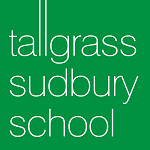Pioneered by education reformer John Holt, unschooling has grown from a niche phenomenon to garnering attention from mainstream media like the Washington Post and The Guardian. The basic concept is simple: don't send your kids to school, and instead, let them do what they want. It looks something like this description from the Christian Science Monitor:
On a late Monday morning in this rural New Hampshire town, Dayna and Joe Martin’s four children are all home. Devin, age 16, is hammering a piece of steel in the blacksmith forge he and his parents built out of a storage shed in the backyard. Tiffany, 14, is twirling on a hoverboard, deftly avoiding the kaleidoscope-painted cabinets in the old farmhouse’s living room. Ivy, 10, and Orion, 7, are sitting next to each other using the family’s two computers, clicking through an intense session of Minecraft.
It looks a lot like school vacation, or a weekend. But it’s not. This, for the Martin kids, is school. Or, to put it more accurately, it’s their version of “unschooling,” an educational theory that suggests children should follow their own interests, without the imposition of school or even any alternative educational curriculum, because this is the best way for them to learn and grow.
Adults unschooled as children report that:
- "they benefited from having had the time and freedom to discover and pursue their personal interests, giving them a head start on figuring out their career preferences and developing expertise in relevant areas"
- "the experience enabled them to develop as highly self-motivated, self-directed individuals"
- they appreciated "having a broader range of learning opportunities; a richer, age-mixed social life; and a relatively seamless transition to adult life."
Unschooling and Sudbury schooling have a lot in common. Like unschooling, a Sudbury education gives children the freedom to explore their interests and learn in the ways that work for them, free from the forced march of tests, bells, and grades. Staff at Tallgrass and other Sudbury schools support students' natural curiosity and motivations, much like unschooling parents do. And graduates of Sudbury schools use similar language as unschoolers do to describe their experiences--and, as adults, report similar high levels of satisfaction with their childhood education.
The major difference between unschooling and a Sudbury education is the role of family versus peers. Many unschooling families are part of homeschool groups, Scouts, sports, and other activities, but geography and scheduling, it can make it difficult for children to have as much peer interaction as they want. At a Sudbury school like Tallgrass, students are part of a wider community every day -- a community that learns and plays together, spends time working through conflicts, and makes decisions democratically.
For families who believe in unschooling but don’t have the flexibility to homeschool or want a more social environment, a Sudbury school can be the perfect solution.
For more information about unschooling, check out the list of resources compiled by Peter Gray.
For more information about enrollment at Tallgrass, visit our enrollment page or contact us.

